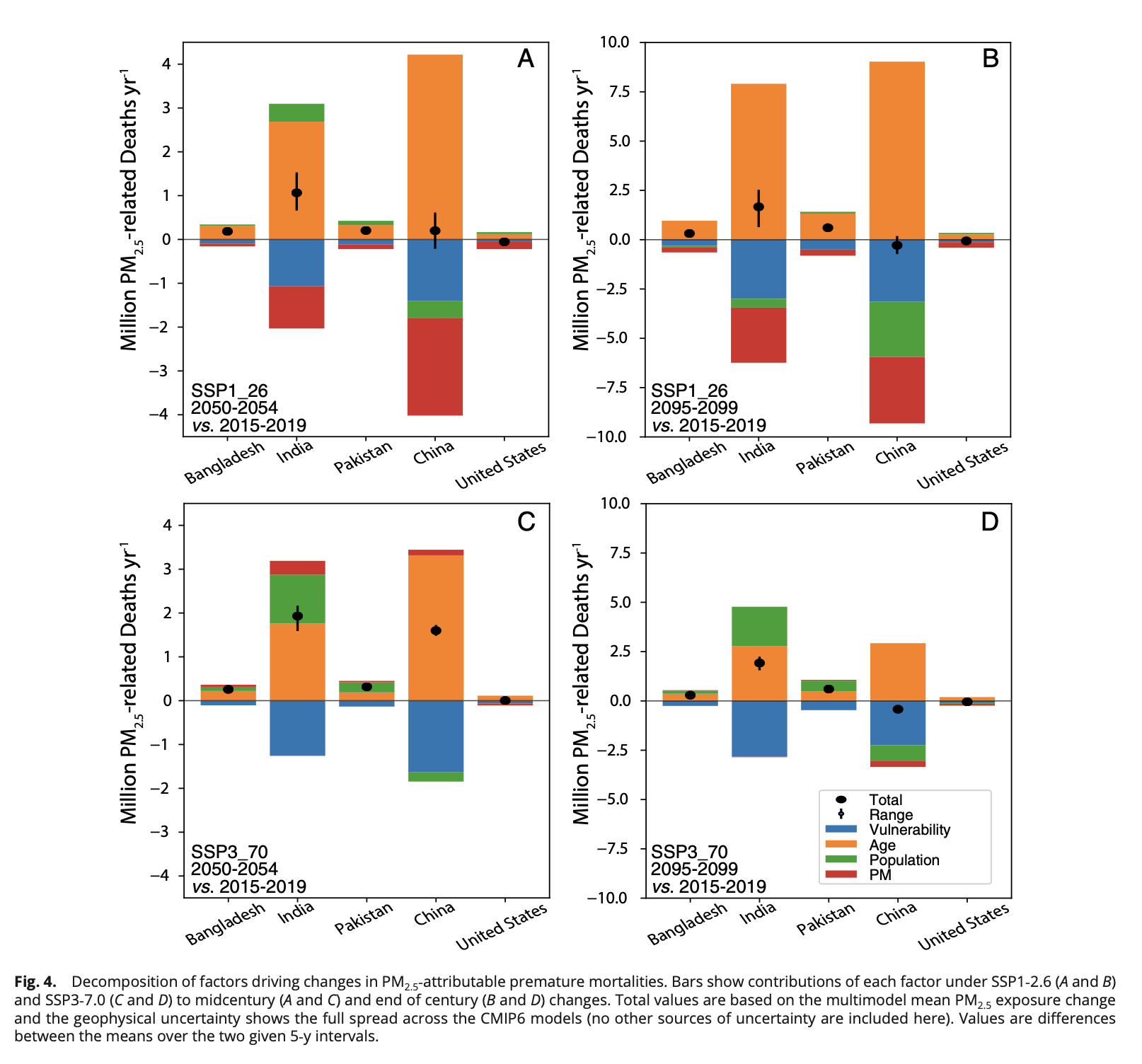张玉强
![]()
开通时间:..
最后更新时间:..
A recent paper collaborated between the group’s PI and Prof. Drew Shindell at Duke University, USA was recently in press on the prestigious journal PNAS. The title is “Reductions in premature deaths from heat and particulate matter air pollution in South Asia, China, and the United States under decarbonization”. The article discussed the premature deaths attributable to fine particulate matter (PM2.5) air pollution and heat exposures for China, South Asia, and the United States using projections from multiple climate models under high- and low-emission scenarios. Projected changes in premature deaths are typically dominated by population aging, primarily reflecting increased longevity leading to greater sensitivity to environmental risks. Changes in PM2.5 exposure typically have small impacts on pre- mature deaths under a high-emission scenario but provide substantial benefits under a low-emission scenario. PM2.5-attributable deaths increase in South Asia throughout the century under both scenarios but shift to decreases by late century in China, and US values decrease throughout the century. In contrast, heat exposure increases under both scenarios and combines with population aging to drive projected increases in deaths in all countries. Despite population aging, combined PM2.5- and heat-related deaths decrease under the low-emission scenario by ~2.4 million per year by midcentury and ~2.9 million by century’s end, with ~3% and ~21% of these reductions from heat, respectively. Intermodel variations in exposure projections generally lead to uncertain- ties of <40% except for US and China heat impacts. Health benefits of low emissions are larger from reduced heat exposure than improved air quality by the late 2090s in the United States. In contrast, in South and East Asia, the PM2.5-related benefits are largest throughout the century, and their valuation exceeds the cost of decarbonization, especially in China, over the next 30 y.
